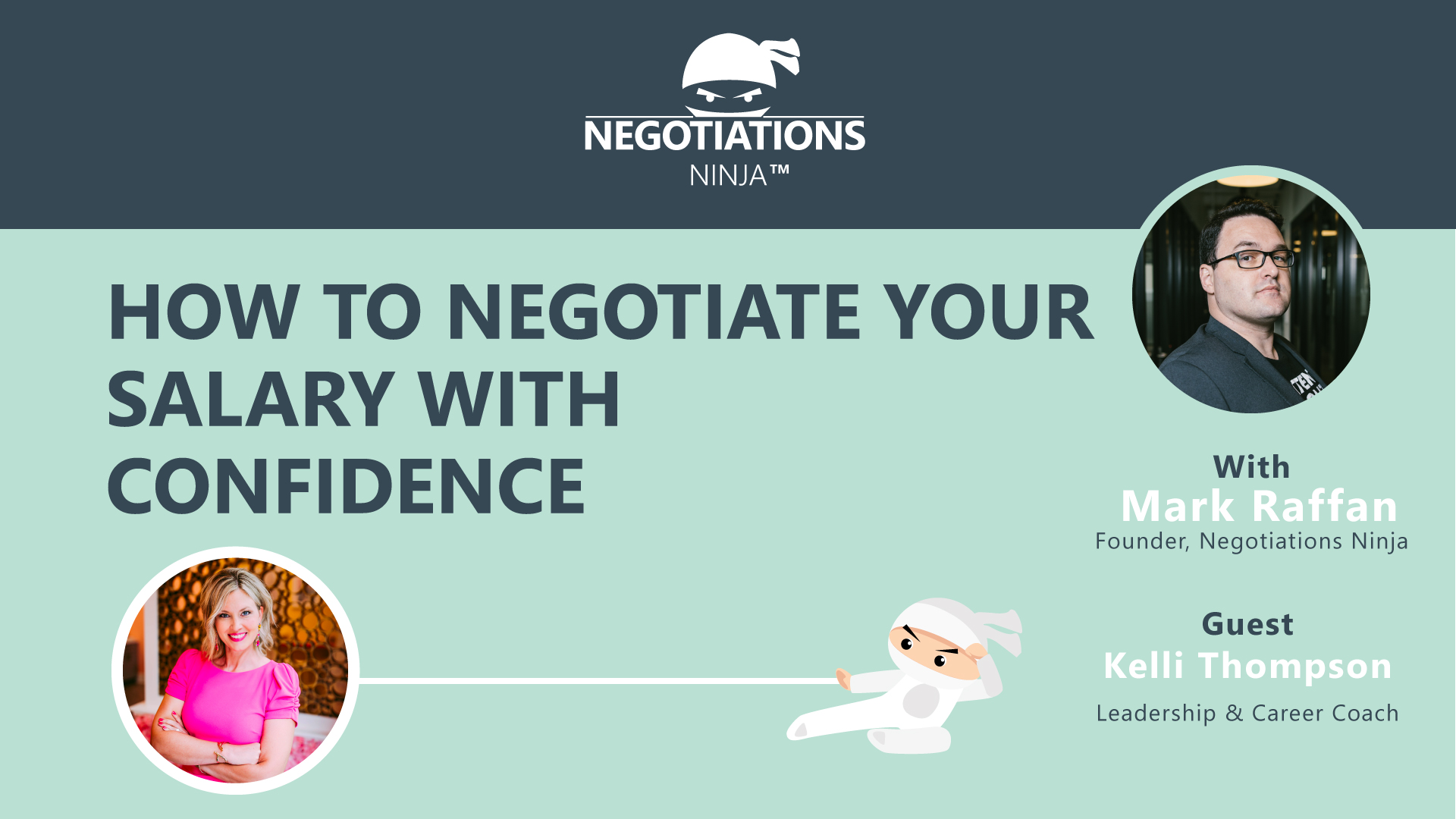Why do women hesitate to negotiate? How do you prep, practice, and make your ask? How do you determine your unique value proposition? Leadership and Career Coach Kelli Thompson is on a mission to help women advance in the rooms where decisions are made. If you’re ready to hone your salary negotiation skills, Kelli Thompson will teach you how to confidently negotiate your salary in this episode of Negotiations Ninja.
Outline of This Episode
- [1:28] Learn more about Kelli Thompson
- [2:26] The myths of salary negotiation
- [8:15] Navigating “How much did you make before?”
- [10:43] Why women hesitate to negotiate
- [14:50] Why is money an untouchable topic?
- [17:08] How to prepare for a salary negotiation
- [20:20] How to determine your unique value proposition
Why is money an untouchable topic?
Most people don’t like to talk about money. Historically speaking, it’s frowned upon to share your salaries. While no law prohibits it, most companies don’t have salary transparency. There’s no corporate roster that says how much someone makes.
Money gets weird because most people are told it’s a private matter that shouldn’t be discussed. It’s always been one big secret. That’s why anxiety creeps in when the conversation arises. It feels riskier than other asks because of our cultural conditioning.
Why women hesitate to negotiate
If a client is sitting in front of Kelli, and she’s hesitating to negotiate, Kelli starts with why. What messages were they told about asking or negotiating? Kelli helps them unpack messages from their family of origin, the culture they were brought up in, things they learned in school, etc. There are 100 different reasons why women might hesitate.
If they’ve been told, “It’s rude to ask,” Kelli will ask, “Is that working for you? Did the message keep you safe when you were a little girl? Maybe some things were rude to ask. Honor that. You didn’t have the adult discernment necessary. But now that you’re an adult, what’s more true? What’s the opposite of “It’s rude to ask?”
- It’s empowering to ask
- It’s polite to ask
- It’s engaging to ask
Then, she asks them for evidence from their career for each point. Most can immediately start pouring out answers. Kelli then asks, “What results did that have for you?” The results are typically overwhelmingly positive.
What would they do if they can take that mindset into their negotiation? What would they try? Walking through this exercise can open up a whole new world.
It doesn’t make the hard feelings go away. Kelli encourages them to name what they’re feeling when they say, “It’s empowering to ask.” It might be exciting, but they may still feel doubtful, anxious, and nervous.
You can make a successful ask while feeling doubtful, anxious, and nervous. You do not have to feel confident to do the thing. Confidence is a side effect of taking action.
How to prepare to negotiate your salary
So, how does Kelli coach people to prepare for a salary negotiation?
-
- Gather data. Payscale, Salary.com, Glassdoor, LinkedIn, etc., all offer salary data for jobs. Look at the work within a given job description and make sure it lines up. Grab some data for your location, job, title, work, etc., to inform and arm yourself.
- What is the unique value proposition you bring to the organization? What are your unique skills and talents? Make a list of a few things that you’ve done that bring value to the table. What results did you achieve for them? You have to articulate your value proposition and the results. How did you save money, improve revenue, reduce risk, or lead change?
- Practice the ask. Don’t go in cold. Record yourself on your phone. Practice in front of the mirror or with your partner. Feel how it feels to make the ask.
- Know your audience and make the ask. If you’re negotiating internally, know who the person is and how they’ll receive the information. Would they prefer to receive the information in an email? Or do they want to have the conversation in person? If you’re in a salary negotiation, you may have this conversation with the recruiter via email or phone.
How do you determine your unique value proposition? Listen to the whole episode to learn how to confidently negotiate your salary.
Resources & People Mentioned
Connect with Kelli Thompson
Connect With Mark
- Follow Negotiations Ninja on Twitter: @NegotiationPod
- Connect with Mark on LinkedIn
- Follow Negotiations Ninja on LinkedIn
- Connect on Instagram: @NegotiationPod




